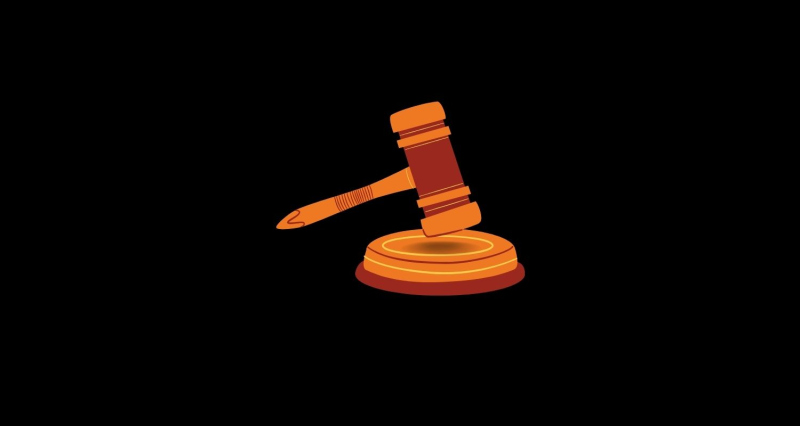
Faced with the shortcomings of the Professional Artists Act, the Society of Polish Filmmakers has initiated a lawsuit against the State Treasury, specifically addressing the clean media fee (also known as reprographic fee). This legal action seeks redress for filmmakers and producers represented by SFP due to the Polish state's failure to provide equitable compensation for the use of works within the realm of permitted personal use. The lawsuit encompasses a three-year period (2020-2023) and is filed for an amount totaling PLN 416 million.
In alignment with the 2001 EU Directive on Copyright in the Information Society, the lawsuit underscores the obligation to ensure fair compensation for creators and film producers regarding the authorized personal use of their works. Polish law interprets private use broadly, allowing the average consumer of cultural goods to engage in daily usage, often unconsciously. Article 23 of the Law on Copyright and Related Rights outlines the extensive scope of permitted personal use, encompassing not only immediate family members (as in many European countries) but also individuals in social relationships. This inclusive definition empowers individuals to freely utilize works from legal sources, such as movies, songs, photographs, and books, for private use without the necessity of remuneration or seeking the author's permission on each occasion.
Creators and producers face financial setbacks due to the absence of revenue from works used within private use, dampening the incentive for traditional film distribution. A common remedy for this is implementing modest fees on devices and media frequently employed by consumers within permissible limits.
While Poland ostensibly has such a system in place, it has, in reality, been more of a facade for years. The fees designated for authors and film producers target devices and media, the majority of which are obsolete and no longer available for purchase, such as DVDs, cassette tapes, or even VHS tapes. Notably, contemporary devices like smartphones, tablets, and laptops—widely used by consumers—have been excluded from this fee arrangement for an extended period.
The outcome is a scenario where the proceeds from fees on media and devices are unreasonably meager, significantly diverging from the sums collected in other European nations. Furthermore, the entire system fails to fulfill its primary objective. Despite the Ministry of Culture and other state bodies being well aware of this situation, efforts to amend the existing model within the draft law on professional artists have not yielded a resolution satisfying the creative community. Given that maintaining the current model implies continued substantial losses for filmmakers and producers in the coming years, the Polish Filmmakers Association has opted to take legal action against the State Treasury for damages due to the violation of its EU law obligation to provide fair compensation.
The infringement of EU law by the Polish state in this matter is so evident that it should not be subject to any doubt. EU law also ensures that those who have suffered harm due to a member state's breach of EU law have the right to seek compensation. Notably, organizations representing creators in the Netherlands and Denmark have successfully pursued a similar course of action in the past.
The damages pursued in SFP's legal action, totaling PLN 416,234,112.30, were derived from sales data for media and devices that should have been subjected to the fee for an extended period, including smartphones, computers, and tablets. To determine the rates, we referenced the rationale of the draft law on professional artists and supplemented it with current data from other countries where fees on clean media are operational and regularly revised. The accuracy of the calculation and the adopted methodology was affirmed by two independent expert opinions from recognized authorities in copyright valuation.
Despite numerous appeals and pleas, efforts to alter the current model stalled at the design phase, primarily hindered by aggressive lobbying from multinational corporations and the populist objections of device manufacturers. These manufacturers consistently wielded the threat of purported hikes in device prices. However, the time has come to break this deadlock. In the face of years of inaction, legal recourse has become imperative to ensure our creators receive their rightful compensation. Technology corporations are amassing wealth at the expense of Polish creators, unwilling to share their substantial profits. As legislation is being developed that could bring about change, as seen in the case of Internet royalties for filmmakers, Reed Hastings, the head of Netflix, visits Poland. “In a peculiar turn of events, after a meeting with the Prime Minister, work on the bill mysteriously halts. We've witnessed a similar lobbying mechanism in the successive reforms of the clean media fee system. However, the era of exploiting Polish culture is over; we will expose such irregularities and seek justice in court," remarks Jacek Bromski, President of the Polish Filmmakers Association.
Our endeavors are driven by two primary objectives. Firstly, we aim to secure compensation for Polish filmmakers and producers who have endured prolonged losses due to the legislative delays of those in power. Equally crucial, our actions seek to bring the attention of the new government to the overarching issue of the failure to align Polish regulations with EU directives. This misalignment contributes to the substantial disparity in compensation between Polish creators, producers, and other entitled individuals, not just within the film industry, compared to their counterparts in other European countries. The longstanding absence of a contemporary clean media fee system is a recognized problem. However, the widening chasm between the profits of internet corporations and the remuneration of Polish creators could also be mitigated by the swift adoption of an amendment to the copyright law concerning internet royalties for filmmakers. Despite the EU directive in this regard being passed 4.5 years ago, it is yet to be adopted in Poland, making it the last country in the European Union. “We will demand a prompt initiative from the new government in this area as well," stated Dominik Skoczek, Director of the Association of Authors and Audiovisual Producers at the Polish Filmmakers Association.